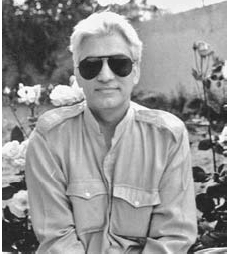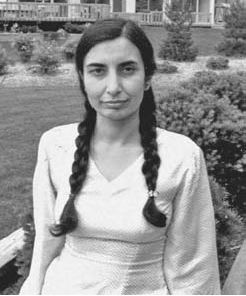My Guantanamo Diary (2 page)
Read My Guantanamo Diary Online
Authors: Mahvish Khan

SECRET CLEARANCE

It was Google that got me to Gitmo.
In 2005, I was in law school at the University of Miami. We were studying the federal torture statutes in my international law class and how policy makers had cleverly circumvented legal principles in creating the military detention camp at Guantánamo Bay, Cuba, where prisoners in the “war on terror” could be held indefinitely without being charged with any crime.
I don’t remember when I first heard about the detention center, but by then, it was something everyone knew about, a daily issue in the news. When people said “Guantánamo,” you knew instantly what they were talking about, and it wasn’t just the military base that the United States has maintained in Cuba since the Cold War.
As a law student and a daughter of immigrants, I thought the prison camp’s very existence was a blatant affront to what America stands for. How could our government create legal
loopholes to deny prisoners the right to a fair hearing? I didn’t know whether the men at Guantánamo were innocent or guilty—how could anyone know if there was no investigative process or trial?—but I believed that they should be entitled to the same justice that even a rapist or a murderer gets in the United States.
I was young and idealistic. But so were the framers of our constitution when they tried to establish the rights and responsibilities of a young nation. All my life, I’d been taught that the United States guarantees everyone certain inalienable rights. My parents had left their home in another country to come to the United States so that their children could grow up with all those rights and with the freedoms that exist here for everyone, no matter a person’s background or socioeconomic status.
“Now is not the time to be complacent,” my mother often said when I was growing up. She believed in political and civic engagement, and I got my passion for it, and a persistent streak, from her. Almost from the first time I heard about the “war on terror” prison, my mother’s words echoed in my mind. It was hard to be complacent.
Some of my passion had to do with my own Pashtun heritage. As an American, I felt the pain of September 11, and I understood the need to invade Afghanistan and destroy the Taliban and al-Qaeda. But I also felt the suffering of the Afghans as their country was bombed. And when hundreds of men were rounded up and thrust into a black hole of detention, many apparently with no proof that they had any terrorist connections, I felt that my own country had taken a wrong turn.
They were people like me and my relatives. I couldn’t help thinking of my own family; how would my aunts or cousins
feel if their husbands and sons and brothers were swept up and deported to Cuba? How many mothers and wives and children were waiting at home in Kabul, or Gardez, or other Afghan cities, waiting for men who couldn’t know when, if ever, they might return home?
Why, I thought, should the luckless Afghans, among others, be deprived of a shot at proving their innocence?
One day, after launching into another tirade about the injustice of Guantánamo Bay, my fiancé got tired of listening to my seemingly never-ending rant. “Why don’t you stop complaining and get yourself involved if you feel so strongly about it?” he asked.
So, I turned on my computer and Googled the names of the attorneys on the landmark Supreme Court case
Rasul v.
Bush
, a habeas corpus case brought in 2004 by two Guantánamo prisoners who challenged the U.S. government’s practice of holding prisoners indefinitely without giving them access to lawyers, the right to a trial, or the right to know the charges against them. In late June 2004, the Supreme Court ruled that the prisoners at Guantánamo Bay had to be allowed access to U.S. courts to challenge their imprisonment.
One of the names that kept popping up on my Google search was Michael Ratner, a lawyer who worked for the Center for Constitutional Rights (CCR) in New York. I started bombarding him, his secretary, and his colleagues with calls and e-mails saying that I wanted to help in their work on behalf of Gitmo prisoners.
They asked me to send a resume. It took a few weeks to figure out exactly how best I could help. Eventually, the attorneys I contacted at CCR put me in touch with Peter Ryan at Dechert, a Philadelphia-headquartered law firm that was
representing fifteen Afghan detainees. I quickly realized that they had no one with a security clearance who spoke Pashto, which meant that none of the attorneys had been able to meet his or her Afghan clients yet.

I’m the daughter of Pashtun immigrants. My parents met in medical school in Peshawar, a city in northwest Pakistan on the Afghan border. They came to America in 1977. They had just gotten married, and Mumma sold some of her wedding jewelry so that they could make it to America. Mumma was twenty-six and Baba-jaan was twenty-seven when they arrived in Baltimore and enrolled in residency programs to complete their medical training. I was born a year later, and my brother Hassan came two years after that. My older brother, Ali, was born in Iran, where my parents had lived for a brief time.

Baba-jaan.
When they first came to America, Baba-jaan and Mumma were desperately homesick. Mumma used to write long letters to her parents because the international calls were too expensive. Initially, they were somewhat let down by their new country. They didn’t like the big supermarkets that sold cold pita bread packaged in plastic bags. They missed the fluffy hot naan that street-side bakers made in brick ovens and the spicy
chapli
kebobs wrapped in newspaper to soak up the
oil. And they saw a lonely side to America, where people call before they visit. They were used to an endless stream of guests ringing the doorbell unannounced. Baba-jaan often reminisced about how he would come home from school, put his things down, and walk from house to house visiting friends and relatives.

Mumma.
They decided early on that they would leave America after they finished their residencies. But when the time came to pack up their little apartment, they changed their minds. They felt it was their duty to give their children the best opportunities. And so they stayed, working late nights at the hospital so that they could afford to send six-year-old Ali to private school, where the tuition was half their salary at the time.
Over the years, my parents grew to admire and love America, and they gradually called it home. Soon enough, they were living the American dream. Baba-jaan became a successful cardiologist. Mumma became the director of neonatology at her hospital close to West Bloomfield, Michigan, where we settled. She was also active politically. Members of Congress attended fund-raisers at our house.
And yet, they were deeply concerned that we children not lose touch with our heritage. They would overcompensate for their decision to come to America. Some aspects of American culture made my father especially anxious about the example, or lack thereof, that it provided me. He wanted me to have a
successful career, but he was adamant about raising a good, conservative Pashtun girl with traditional Eastern values. That literally meant no MTV, no short skirts, no tight jeans. No drinking. No prom and definitely no boyfriends. Ever. “You take the good from this culture and leave the bad,” they would say.
For some time, they insisted that I wear traditional clothes,
kameez-partoog
, to school.
Kameez-partoog
consists of a long tunic of varying length and loosely fitted matching pants underneath. For women, they are often mirrored or embroidered and come in an assortment of colors and fabric. Now I think they are beautiful, but for a fourth grader, this was a nightmare. I wanted only to look and dress like everybody else. Once, on picture day in elementary school, Mumma picked out a blue tunic with red pants. I grudgingly put it on. I remember standing in line in my colorful
kameez-partoog
, wishing I could find a hole to crawl into. My outfit made the girl behind me in line curious. I’ve forgotten her name, but I remember she had long blond hair, and
her
mother dressed her in a skirt and blouse.
“Why are you wearing pajamas?” she asked.
I was wildly embarrassed. At that age, everyone just wants to blend in. I took to changing my clothes once I arrived at school. It was a small school, so many of my friends and some of the teachers were in on the changing routine. Mumma and Baba-jaan never found out.
As I got older, my life was sheltered and laden with restrictions to keep out the influence of American sex, drugs, and rock ’n’ roll. I felt stifled. As a teenager, I didn’t really care for the funny food and clothes, and it drove me mad when my par-
ents spoke to me in Pashto in front of my friends. Thanksgiving at our house was different too. We didn’t have gravy, stuffing, or cranberry sauce, and our turkey was marinated in spices like cumin, coriander, and
tandoori masala
. Whatever was left over, Mumma turned into turkey kebobs. I never asked them to do anything differently because I knew it was just as challenging for them as it was for me. The idea of heritage was so central to them; besides, Mumma thought the American way of making Turkey was too bland, and she couldn’t fathom how meat and cranberry sauce went together.
“I’m American,” I remember saying to my grandmother. “I was born in America, and I’ve lived my whole life in America.”
“No, you’re not,” she would object in Pashto. “You’re a Pashtun girl, and, above all, you are a Muslim girl.”
By the time I entered college, I felt suffocated by the expectation to uphold traditions I was unfamiliar with. When I moved into my all-girls dorm room at the University of Michigan, I was by all standards a very good Eastern girl. I had never tasted alcohol or had a boyfriend. Latently, though, I struggled with the prospect of balancing two very distinct cultures. I distracted myself with campus life. I wrote for the
Michigan Daily
, joined the Fencing Club, took part in student demonstrations, and made friends from around the world. I soaked up everything, inside and outside the classroom. But I made a point to stay away from the Muslim Student Association, and I didn’t go out of my way to befriend people of Eastern backgrounds.